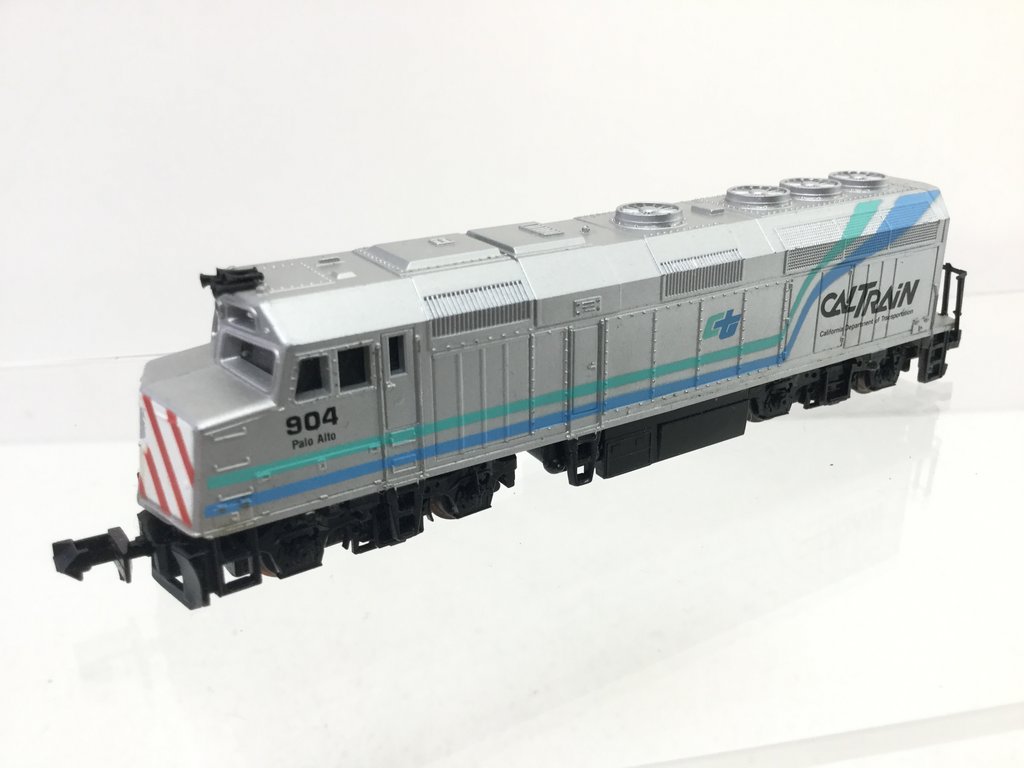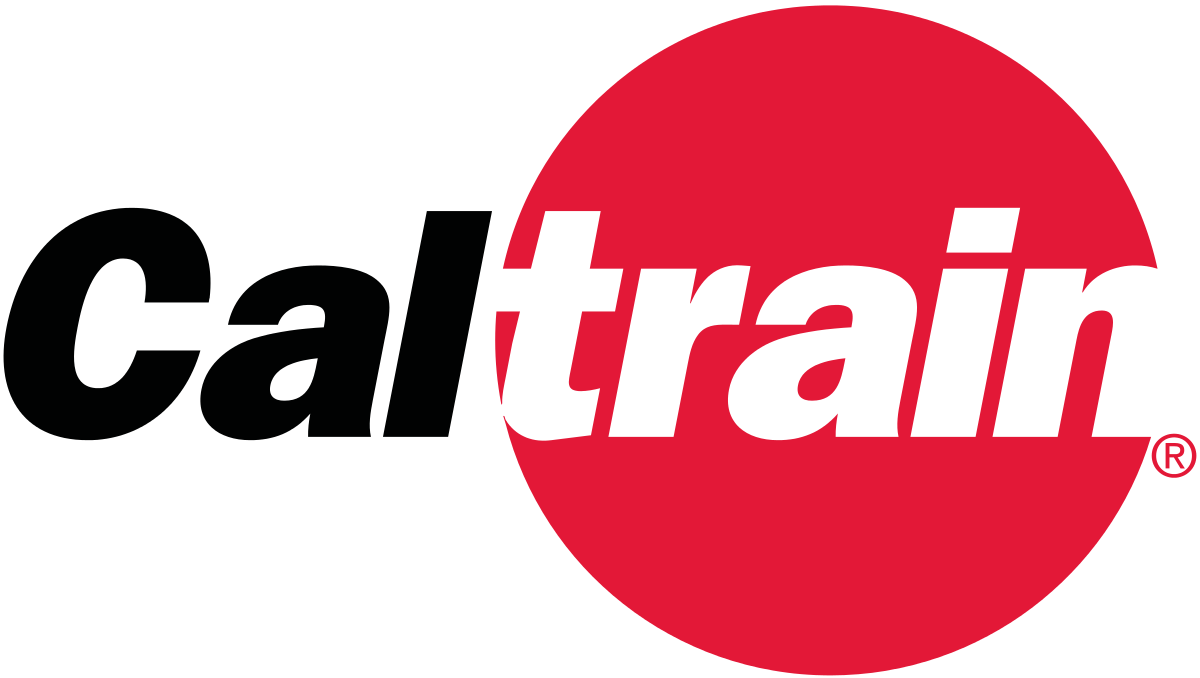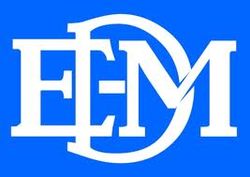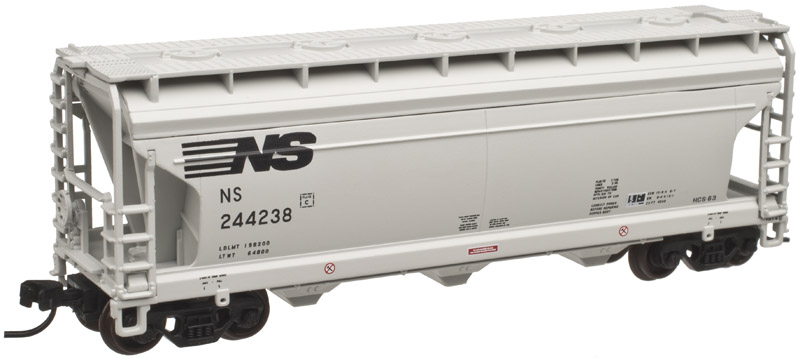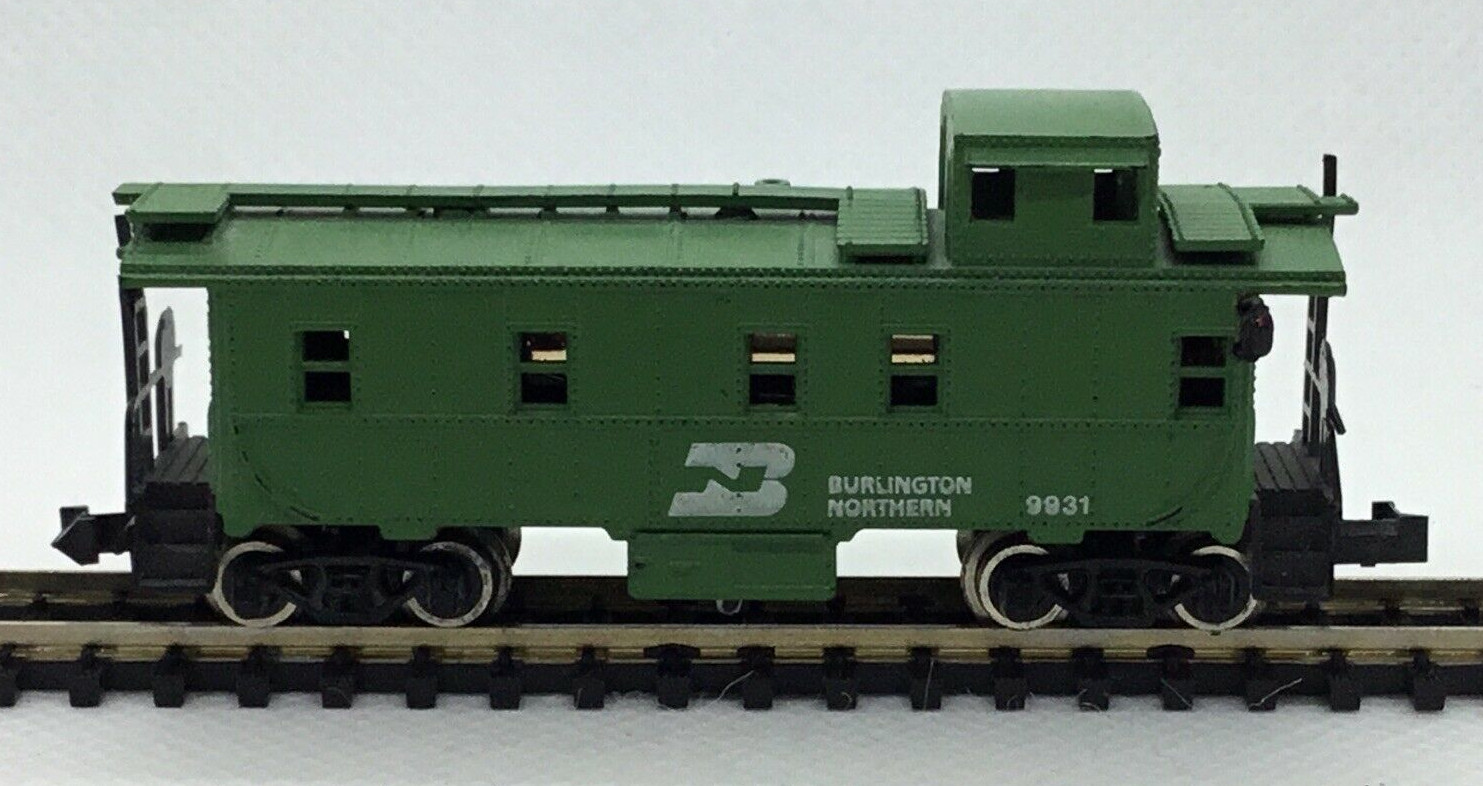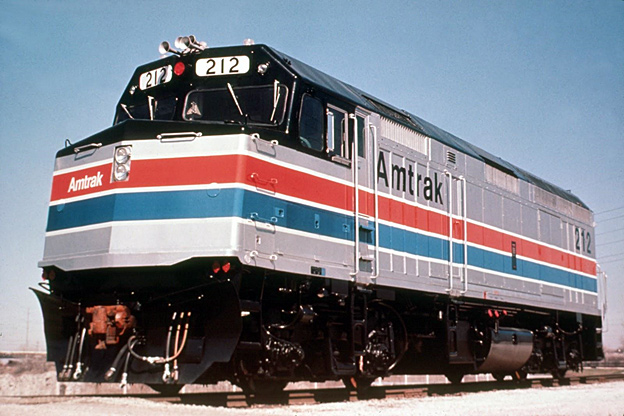Model Information: Life-Like started production of this model in 1991. It was part of their push to provide a low-cost alternative to Atlas and Kato models. The models were produced in China from the get-go, likely by Kader. The chassis is all plastic and quite light. Their are weights situated on top of each of the trucks which provide most of the model's weight. The motor is an skew-wound, 5-pole mechanism. All eight wheels are geared and provide pickup (no traction tires). The electricity is transferred from the trucks to the motor by means of wiring. All the gears are plastic. The driveshafts are made from plastic and have springs in the middle. The couplers are truck-mounted Rapidos with open pilots. A single non-directional headlight sits beneath the forward truck weight. The wheels are low-profile chemically blackened metal.
DCC Information: The models are not DCC anything,
Prototype History: The EMD F40PH is a four-axle 3,000 - 3,002 hp (2.2-2.2 MW) B-B diesel-electric locomotive built by General Motors Electro-Motive Division in several variants from 1975 to 1992. Intended for use on Amtrak's short-haul passenger routes, it became the backbone of Amtrak's diesel fleet after the failure of the EMD SDP40F. The F40PH also found widespread use on commuter railroads in the United States and with Via Rail Canada. Additional F40PH variants were remanufactured from older locomotives by Morrison-Knudsen and MotivePower Industries between 1988 - 1998.
Amtrak retired its fleet of F40PHs in the mid-1990s in favor of the GE Genesis, but the locomotive remains the mainstay of Via Rail's long-distance trains and is a common sight on commuter railroads throughout the United States.
From Wikipedia
Amtrak retired its fleet of F40PHs in the mid-1990s in favor of the GE Genesis, but the locomotive remains the mainstay of Via Rail's long-distance trains and is a common sight on commuter railroads throughout the United States.
From Wikipedia
Road Name History: Caltrain is a California commuter rail line on the San Francisco Peninsula and in the Santa Clara Valley (Silicon Valley). The northern terminus of the line is in San Francisco at 4th and King streets; its southern terminus is in Gilroy. Trains leave San Francisco and San Jose about hourly on weekdays, or more frequently during commute hours and for special events such as sporting events. Service between San Jose and Gilroy is limited to three weekday commute-time round trips. Weekday ridership in February 2015 averaged 58,245, up 10.7% from February 2014 and up 71% since 2010.
Caltrain is governed by the Peninsula Corridor Joint Powers Board (PCJPB) which consists of agencies from the three counties served by Caltrain: San Francisco, San Mateo and Santa Clara. Each member agency has three representatives on a nine-member Board of Directors. The member agencies are the City and County of San Francisco, SamTrans and the Santa Clara Valley Transportation Authority.
Caltrain has 29 regular stops, one football-only stop (Stanford Stadium), and two weekend-only stops (Broadway and Atherton). As of October 2012 Caltrain runs 92 weekday trains (22 Baby Bullet), 36 Saturday (4 Baby Bullet), and 32 Sunday (4 Baby Bullet).
Caltrain is governed by the Peninsula Corridor Joint Powers Board (PCJPB) which consists of agencies from the three counties served by Caltrain: San Francisco, San Mateo and Santa Clara. Each member agency has three representatives on a nine-member Board of Directors. The member agencies are the City and County of San Francisco, SamTrans and the Santa Clara Valley Transportation Authority.
Caltrain has 29 regular stops, one football-only stop (Stanford Stadium), and two weekend-only stops (Broadway and Atherton). As of October 2012 Caltrain runs 92 weekday trains (22 Baby Bullet), 36 Saturday (4 Baby Bullet), and 32 Sunday (4 Baby Bullet).
Brand/Importer Information:  Life-Like Products LLC (now Life-Like Toy and Hobby division of Wm. K. Walthers) was a manufacturer of model railroad products and was based in Baltimore, Maryland.
Life-Like Products LLC (now Life-Like Toy and Hobby division of Wm. K. Walthers) was a manufacturer of model railroad products and was based in Baltimore, Maryland.
It was founded in the 1950s by a company that pioneered extruded foam ice chests under the Lifoam trademark. Because ice chests are a summer seasonal item, the company needed a way to keep the factory operating year round. As model railroading was becoming popular in the post-war years, they saw this as an opportunity and so manufactured extruded foam tunnels for model trains. Over the years, Life-Like expanded into other scenery items, finally manufacturing rolling stock beginning in the late 1960s. At some point in the early 1970s, Life-Like purchased Varney Inc. and began to produce the former Varney line as its own.
The Canadian distributor for Life-Like products, Canadian Hobbycraft, saw a missing segment in market for Canadian model prototypes, and started producing a few Canadian models that were later, with a few modifications, offered in the US market with US roadnames.
In 2005, the company, now known as Lifoam Industries, LLC, decided to concentrate on their core products of extruded foam and sold their model railroad operations to Wm. K. Walthers.
In June 2018, Atlas and Walthers announced to have reached an agreement under which all Walthers N scale rolling stock tooling, including the former Life-Like tooling, will be purchased by Atlas.
Read more on Wikipedia and The Train Collectors Association.

It was founded in the 1950s by a company that pioneered extruded foam ice chests under the Lifoam trademark. Because ice chests are a summer seasonal item, the company needed a way to keep the factory operating year round. As model railroading was becoming popular in the post-war years, they saw this as an opportunity and so manufactured extruded foam tunnels for model trains. Over the years, Life-Like expanded into other scenery items, finally manufacturing rolling stock beginning in the late 1960s. At some point in the early 1970s, Life-Like purchased Varney Inc. and began to produce the former Varney line as its own.
The Canadian distributor for Life-Like products, Canadian Hobbycraft, saw a missing segment in market for Canadian model prototypes, and started producing a few Canadian models that were later, with a few modifications, offered in the US market with US roadnames.
In 2005, the company, now known as Lifoam Industries, LLC, decided to concentrate on their core products of extruded foam and sold their model railroad operations to Wm. K. Walthers.
In June 2018, Atlas and Walthers announced to have reached an agreement under which all Walthers N scale rolling stock tooling, including the former Life-Like tooling, will be purchased by Atlas.
Read more on Wikipedia and The Train Collectors Association.
Item created by: gdm on 2018-08-13 09:50:59. Last edited by CNW400 on 2020-09-30 12:49:57
If you see errors or missing data in this entry, please feel free to log in and edit it. Anyone with a Gmail account can log in instantly.
If you see errors or missing data in this entry, please feel free to log in and edit it. Anyone with a Gmail account can log in instantly.


